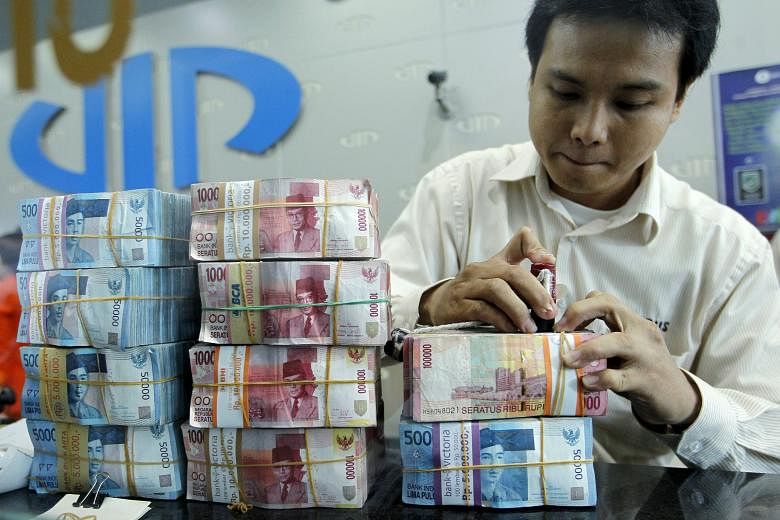KUALA LUMPUR • Malaysia's ringgit and Indonesia's rupiah are the most attractive emerging-market currencies, says Morgan Stanley's asset management arm, following a sell-off that drove them to their lowest levels in 17 years.
The currencies are Asia's worst performers this year, as a slump in commodity prices hurts exports and the United States Federal Reserve prepares to raise interest rates.
Morgan Stanley Investment Management predicts the two currencies will outperform their peers. It says developing economies are unlikely to see a repeat of the so- called Taper Tantrum of 2013 - US$70 billion (S$98 billion) was pulled from their bond markets after the Fed signalled that monetary stimulus would be cut.
"Malaysia is the cheapest from our medium-term foreign exchange modelling in emerging markets, and Indonesia is the second," Mr Jens Nystedt, a managing director of the New York-based money manager, said by telephone from Jakarta on Wednesday.
"Given the sell-off that we've seen in both currencies and bonds, you would be rewarded to take exposure at this point. India looks attractive but not as attractive."
A Fed rate increase this year would not surprise investors, and further losses in emerging-market exchange rates would be temporary as they had been declining in the past year, said Mr Nystedt.
Narrower current-account deficits in Indonesia and India put them in a stronger position to endure outflows than was the case two years ago, and both countries are candidates to leave Morgan Stanley's Fragile Five list, he said.
"India and Indonesia have taken steps in the right direction, given the new governments that have come into being, and India in particular has been more bold than other markets when it comes to reforms," he said.
The money manager, which had US$403 billion in assets at the end of June, also favours the government bonds of the two countries, along with Malaysian sovereign debt, he said.
The ringgit has lost 18 per cent this year as a slump in crude oil prices hammered exports and allegations of corruption against Prime Minister Najib Razak spurred outflows. Mr Najib has denied taking money for personal gain.
The ringgit rallied yesterday, gaining the most in five months, after a surge in Brent crude eased concerns that finances would deteriorate for Asia's only major oil exporter.
It climbed 1.3 per cent to a two-week high of 4.2545 against the greenback in Kuala Lumpur, based on prices from local banks compiled by Bloomberg. That is the strongest advance since April 24. It was trading at 3.0402 against the Singapore dollar at 5pm local time.
The rupiah has weakened 14 per cent while the rupee has fallen 5.1 per cent in the same period, data compiled by Bloomberg shows.
Against the Singapore dollar, the rupiah was trading at 10,334.3 yesterday, and the rupee, 47.46.
BLOOMBERG

